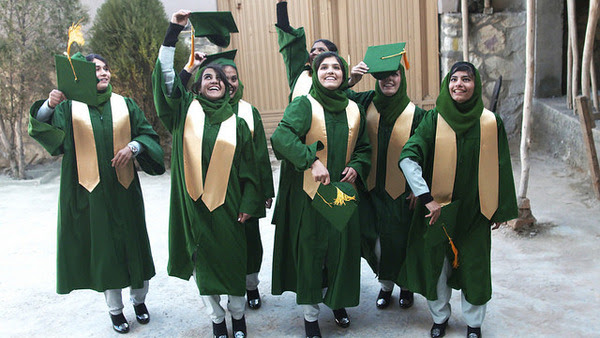It isn't the woman walking through a dark alley way or the woman who "wants it" who becomes the next victim of rape and sexual assault. It isn't a woman deemed sexy by middle-class society. The assailant isn't large, black, and waiting for her, and he isn't a stranger in most cases. These are the myths surrounding rape and sexual assault that cloud our media and further attack men and women who are victims of this violent crime. With such hefty assumptions furthered daily by the mainstream, it should be no shock that rape is the violent crime that goes unreported most often.
Statistics abound regarding the numbers of women affected by rape and sexual assault. The predominant statistic circulated among rape educators reads “1 in 4 women will be affected by sexual assault or rape in her lifetime.” That is 25 percent of roughly half the world’s population – 25 percent that will be violated in some way by another person against her consent, against her will.
The legal system is failing our victims, failing our men and women by taking one of the most devastating violent actions and getting it caught up in the bureaucracy of legal red tape. A woman in Florida reported a rape, but instead of following through with the prosecution of the incident, she was jailed when a former warrant surfaced. A statement by the Florida college student also says an employee of the jail refused to administer a second dose of the “morning after” pill.
The woman received an apology from the Tampa police, according to the article, but it doesn’t remove the devastation.
Instead of consoling victims, or helping those who brave their own fears and report a rapist, we as a society too often chastise them, smear their names in the media and dehumanize them even further.
Have you looked at the Duke lacrosse rape case ? Perhaps, a better question would be “Who hasn’t?” Though the facts of the altercation are grey at best, given the intense media campaign coupled with commentary by leaders in all walks of life.
This case, beyond any other, has made it painfully clear that the American nation needs a shift in mentalities when it comes to victims of rape and sexual assault. Immediately, this woman’s claim was lessened because of two key factors and perhaps misconceptions when it comes to speaking about rape and sexual assault. First, society discredited this woman because of her deviant profession – an exotic dancer. As a sex worker of sorts, it was believed that she could not be raped. A career choice, made for whatever reason, does not take away a woman’s ability to give consent.
Secondly, the woman involved was a woman of color accusing young white men from a prestigious university. The combination of the two factors built a case against her in the public eye, regardless of other issues in the case. All of the cards were already against her.
I can imagine the fear that goes along with such a situation, in knowing that no one is going to believe you, yet persisting with identifying high-profile sexual assailants. Am I saying that I, without a shadow of a doubt, believe in this woman’s claims, inconsistent story and all? No. But, the vast majority of survivors or victims of sexual assault and rape do not lie about their experiences. I owe her the same benefit of the doubt.
Rape isn’t only a woman’s issue and never should have been assigned to that domain. The violent act itself is most commonly perpetrated by men against women, and that in and of itself is enough to break down the stereotype that men “don’t have to worry about it.” The chilling statistic that declares that 1 in every 12 men will be raped or sexually assaulted adds to the mounting case that society is ultimately dismissing a horrible phenomenon, that at one point or another, will affect most people in the country in some way or another. It is fortunate that each individual in this country will not have to deal with the atrocities of rape and sexual assault personally. However, in some way or another, most will be touched through the life of a survivor – a sister, mother, aunt, grandmother, best friend, partner, or other individual. Rape is not something we can close our eyes to.
Rape and America’s inconsistent, at best, attitude towards it didn’t disappear with the 20th century. It still exists and will continue to do so until someone says it’s time for the violence, the legal bias, the media judgement, and the acceptance to stop.
The longer we treat rape as a four-letter word, unspeakable except for in hushed tones, the more victims will amount and the fiercer battle we create for ourselves as human beings.
Juana Maria Summers
Dear Reader,
In The Fray is a nonprofit staffed by volunteers. If you liked this piece, could you
please donate $10? If you want to help, you can also:

